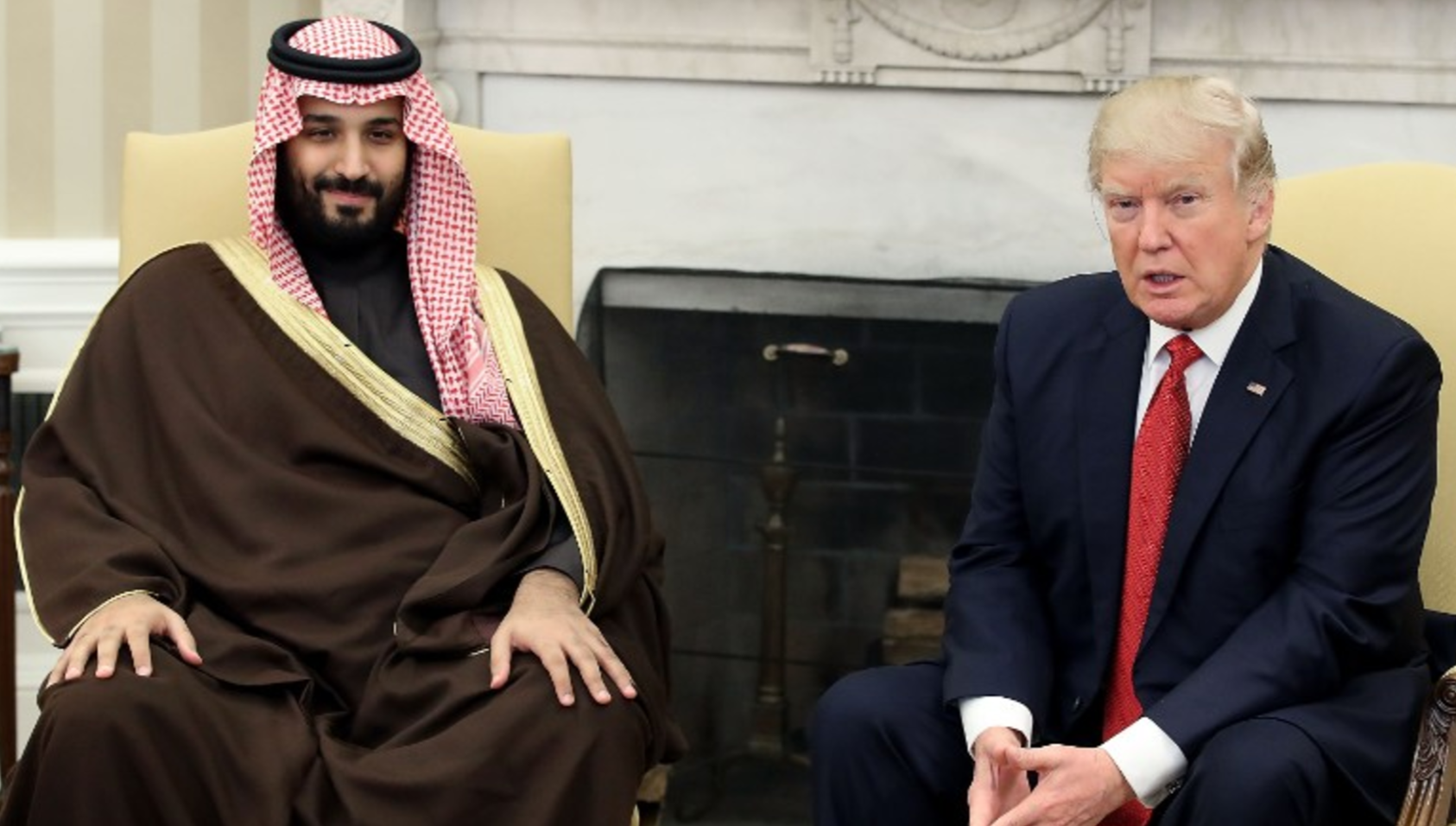Robert Rosenkranz introduces the Intelligence Squared U.S. debate:
The United States and Saudi Arabia first began their uniquely close relationship back in 1945, when then-President Franklin Delano Roosevelt and then-King of Saudi Arabia Abdul Aziz established a strong connection. President Donald Trump has asserted that he will take an “America First” approach to running the country, meaning he plans to devalue many of the nation’s established alliances with other nations while also minimizing America’s reputation as a pillar of global leadership in favor of focusing on interests closer to home. This, combined with sentiments stemming from the 9/11 attacks, human rights considerations and the two nations’ diverging interests, among other concerns, has some Americans questioning whether the U.S.- Saudi relationship has run its course.
Pre-Debate Poll Results
Prior to the debate, 28 percent of audience members voted in favor of the motion, 26 percent were against it and 46 percent were undecided.
Yes, the U.S.-Saudi relationship has outlived its usefulness.
Arguing in favor of the motion that the relationship between the United States and Saudi Arabia has outlived its usefulness are Madawi Al-Rasheed, a visiting professor at the London School of Economics, and Mark P. Lagon, a Centennial Fellow, a Distinguished Senior Scholar at the Walsh School of Foreign Service and a former president of the Freedom House.
Arguments Made in Favor of the Motion
The debaters who agreed with the motion that the relationship between the United States and Saudi Arabia has outlived its usefulness argued that the United States can no longer ethically turn a blind eye to Saudi Arabia’s blatant disregard for human rights, specifically referencing Saudi Arabia’s treatment of dissidents, women and religious minorities.
They also noted that the United States no longer needs to rely on Saudi Arabia for its oil and gas needs, because the United States has made its own strides with respect for oil and natural gas production in recent years. Proponents for the motion also noted the sharp differences between the two nations with respect for national security, noting that the United States should not be tolerant of Saudi Arabia’s willingness to help finance and otherwise support extremist groups.
No, the U.S.-Saudi relationship has not outlived its usefulness.
Arguing against the motion that that the relationship between the United States and Saudi Arabia has outlived its usefulness are F. Gregory Gause, a John F. Lindsay Chair and the head of the International Affairs department at Texas A & M University, and James Jeffrey, a Philip Solondz Distinguished Fellow at the Washington Institute and a former ambassador to Turkey and Iraq.
Arguments Made Against the Motion
Those who argued against the motion that the relationship between the United States and Saudi Arabia has outlived its usefulness noted that the relationship can prove highly useful when it comes to combatting global terrorism, and that the relationship must endure if the two nations are going to continue to share critical intelligence with one another. They also refuted arguments about the United States not needing to rely on Saudi Arabia for oil needs anymore by noting that Saudi Arabia remains the largest crude oil producer on the planet, and that damaging the relationship would hinder the United States’ access to its massive supply.
Opponents to the motion also noted that Saudi Arabia is among the most stable nations in a largely unstable Middle East, and that breaking ties now, after a 70-year history, would inevitably alienate Saudi Arabia, which is something the United States simply cannot afford to do.
Post-Debate Poll Results
Following completion of the debate, 31 percent of audience members were in favor of the motion, 59 percent were against it and 10 percent were undecided.




